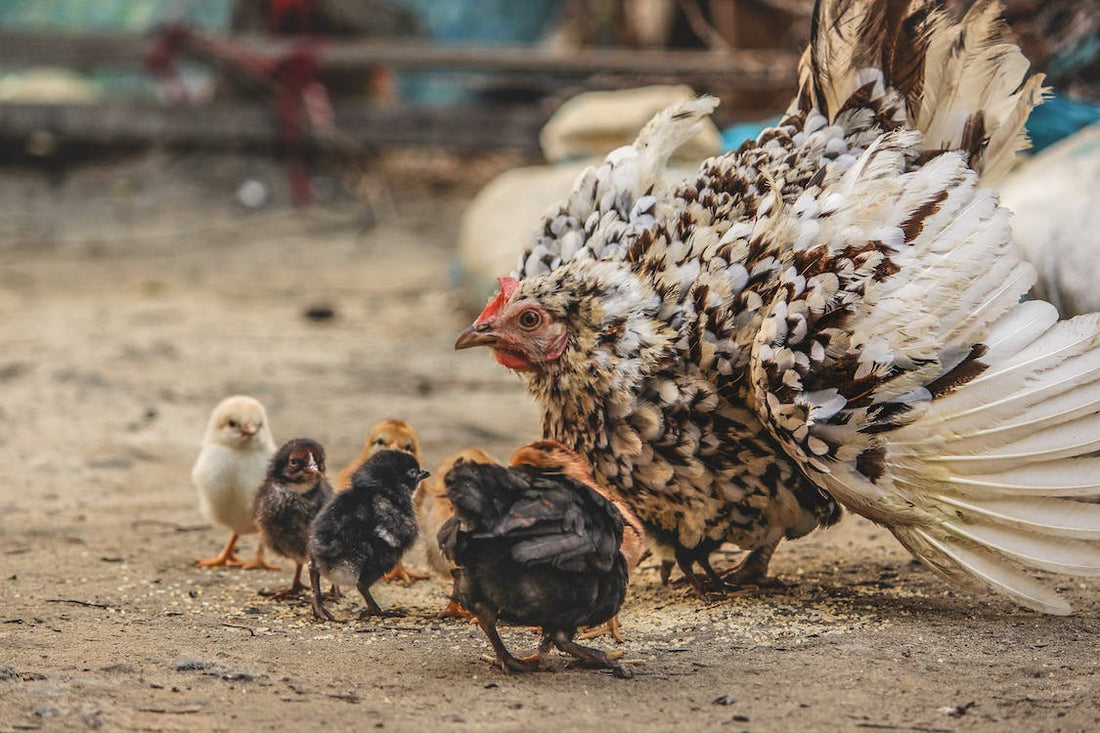If you've spent any time around chickens, you've likely heard the term "broody hen" thrown around. But what does it actually mean? In this article, we'll take an in-depth look at what a broody hen is, why they become broody, and how to manage broodiness in your flock.
A broody hen is a chicken that has gone into a state of hormonal and behavioral changes that make her want to incubate a clutch of eggs and raise chicks. During this time, the hen will spend most of her time sitting on a nest of eggs, and may become aggressive or defensive if anyone tries to disturb her.
When a hen goes broody, she essentially becomes a "mother hen" and will become very protective of her nest of eggs, even if they're not fertile. Her hormones will cause her to stop laying eggs, and she may lose weight and become dehydrated if she doesn't leave the nest often enough to eat and drink.
Broodiness is a natural behavior for hens, and is essential for the survival of the species. However, it can also be a problem for backyard chicken keepers or commercial farmers who are trying to maximize egg production.
Why Do Hens Become Broody?
There are several reasons why a hen might become broody, including:
Hormonal changes: As a hen's body prepares to lay eggs, her hormones will also trigger broody behavior. This is why hens tend to become broody during the spring and summer months, when they are most fertile.
Genetics: Some chicken breeds are more prone to broodiness than others. Breeds such as Buff Orpingtons, Cochins, and Silkies are known for being particularly broody.
Environment: A hen may become broody if she feels that her nest or environment is safe and secure enough to raise chicks. If she feels threatened or stressed, however, she may not go broody.
Lack of eggs: If a hen doesn't have access to a nesting box or there aren't enough eggs to go around, she may become broody in an attempt to incubate any available eggs.
How to Manage Broody Hens
If you're a backyard chicken keeper or a commercial farmer, broodiness can be a problem. A broody hen will stop laying eggs, and may even become aggressive towards other hens or humans if they try to disturb her. Here are some tips for managing broody hens:
Remove eggs: If you don't want your hens to become broody, make sure you collect eggs from the nesting boxes regularly. If you leave eggs in the nest, the hens may start to incubate them and become broody.
Discourage nesting: You can also discourage broodiness by making sure your hens don't have access to a comfortable nesting spot. For example, you could remove any soft bedding or nesting material from the coop.
Interrupt broodiness: If your hen has already gone broody, you can try to interrupt her behavior by removing her from the nest box and keeping her away from it for several days. You can also try dunking her in a bucket of cold water, or putting her in a "broody breaker" cage that is designed to discourage broodiness.
Provide a broody box: If you do want to hatch chicks, you can provide a "broody box" for your hen to sit on. This should be a separate box or area that is comfortable and secluded, with a soft bedding material and access to food and water. You can then provide fertilized eggs for her to incubate.
Consider a broody hen program: If you have a commercial chicken operation and want to maximize your egg production, you may want to consider a broody hen program. This involves selecting hens that are more prone to broodiness, and allowing them to incubate fertilized eggs in a separate area of the farm. This can be a cost-effective way to hatch chicks and increase your flock size without having to purchase new chicks.
A broody hen is a chicken that has gone into a state of hormonal and behavioral changes that make her want to incubate a clutch of eggs and raise chicks. Broodiness is a natural behavior for hens, but can also be a problem for backyard chicken keepers or commercial farmers who are trying to maximize egg production.
If you want to manage broodiness in your flock, there are several steps you can take. You can remove eggs from the nesting boxes regularly, discourage nesting by removing soft bedding or nesting material, interrupt broodiness by removing the hen from the nest box or using a broody breaker cage, provide a broody box for hatching chicks, or consider a broody hen program for commercial farming.
Overall, understanding broodiness in chickens is important for any chicken keeper or farmer, and with proper management, broodiness can be a valuable asset for hatching chicks and expanding your flock.

